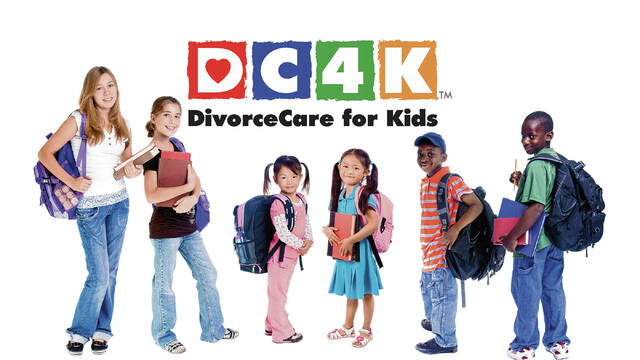Sara Simmons still remembers.
She remembers the roller coaster of painful and confusing emotions she felt as a 9-year-old when her parents divorced.
“I dealt with some of that then,” Simmons said. “And then when my Dad divorced again when I was in my 20s, I had to deal with it all over again.”
She is the facilitator for the upcoming 10-week support group called DivorceCare For Kids beginning Feb. 15 and primarily for youngsters in grades 2 through 6 at the Tuesday Connection gatherings at Community Church of Columbus, 3850 N. Marr Road. This is just one of 13 different groups meeting on that date and the following nine weeks.
Groups gather at 6:30 p.m. Dinner is also available at 5:30 p.m.
The groups are open to anyone interested regardless of beliefs or church affiliation.
DivorceCare For Kids, also known as DC4K, “provides children with a safe and neutral place to gain an age-appropriate understanding of separation and divorce. They will learn how to process and share their feelings,” according to the national website dc4k.org. “The weekly session topics help your children learn that God’s love strengthens them and helps them turn their sadness to hope and their anger to joy.”
Sessions include activities, games, crafts, role playing, discussion times, journaling, and activity books to help children process the divorce and move forward in their lives. The music, snacks, read-aloud stories and Bible verses teach youngsters to relax and rest secure in God’s love, according to organizers.
Simmons first heard of DivorceCare For Kids about 15 years ago.
“It was something that I felt like could really be beneficial for kids,” Simmons said.
Scott Hundley, director of Community Downtown, an outreach ministry of Community Church of Columbus, has seen its effectiveness over the years it has been offered at Tuesday Connection.
“Many times, when adults are navigating a divorce, the children are left to manage their emotions on their own,” Hundley said. “DC4K is an intentional program to come alongside the children in the process of their own healing. Parents continue to tell us that it has been extremely helpful.”
Simmons, who has been a facilitator in the past, shares part of her own experience with group members to let them know she can relate to their emotions and feelings.
“The first couple weeks (of meetings) is always a little tricky for them, because they are trying to figure out how much they can say, and if they’re in a safe place,” she said. “And after that, they do like to know that someone else understands.”
She mentioned that building trust with group members is a big issue.
“It’s honestly a matter of just being there for them and being open,” Simmons said. “And they like to know that whatever they’re feeling — such as if they’re angry — will not automatically be reported to mom or dad. They want to know that they’re OK to say that. And that people will not be mad at them because of it.
“And these kids all need somewhere safe to say things like, ‘This makes me sad.’ Or ‘I feel guilty,’ and not be in trouble for that.”
Simmons acknowledged that some parents can be hesitant to sign up their children for the group out of worries that the youngster might air all their personal family problems. Or there is another obstacle: If youngsters come home and complain that the group feels a bit like school.
“The parents feel guilty that they already are putting their kids through a divorce,” Simmons said. “And so sometimes they don’t want to make the kids do anything else that they don’t really want to do. So then the parents will not make the kids go through the group.”
So some have dropped out.
Group participants are sent home to parents after each meeting with details of that night’s meeting. Simmons feels strongly that a Christian church should be addressing such practical matters as divorce fallout.
“My thought on it is that it’s part of being the practical, hands and feet of Jesus,” she said. “It’s about not wanting people to come in perfect. It’s about wanting people to come in to find Jesus.
“In churches, there are people dealing with things like recovery, and there are families dealing with mental health issues and parenting problems and marital issues. Those are all people Jesus wants in the church. He doesn’t want us to pretend to be perfect.”





